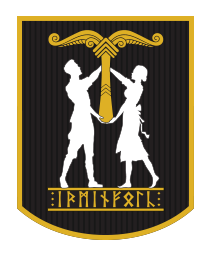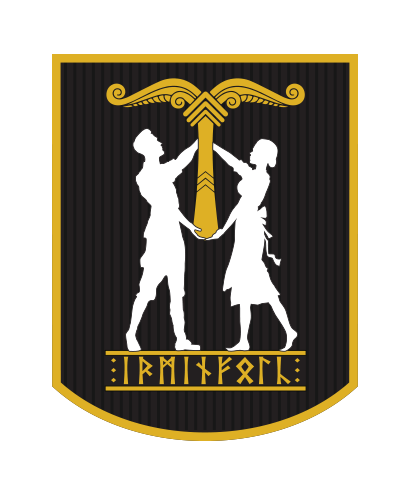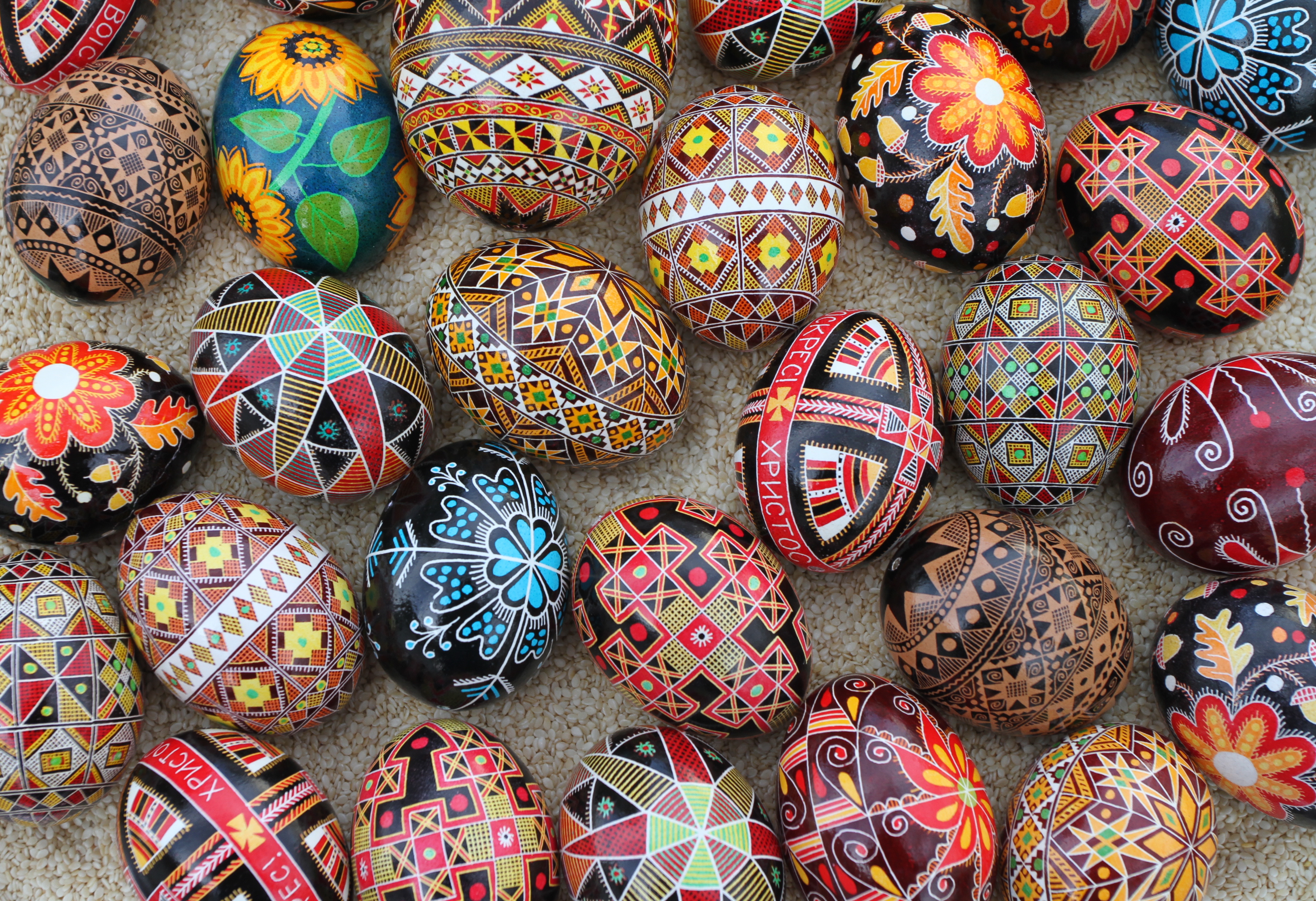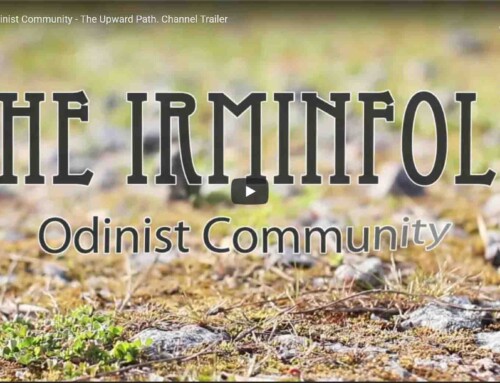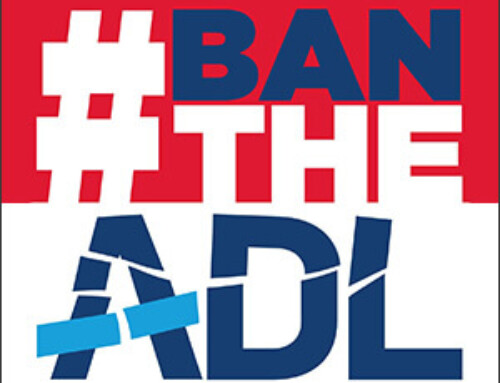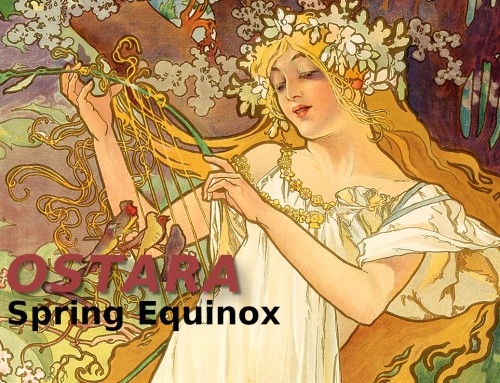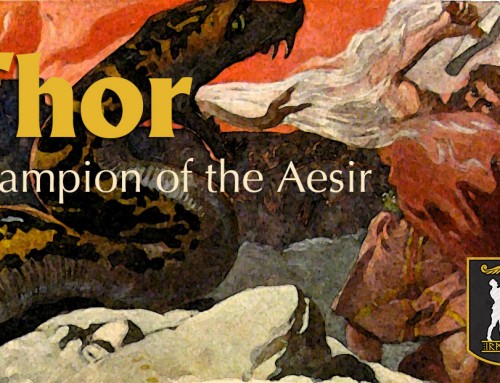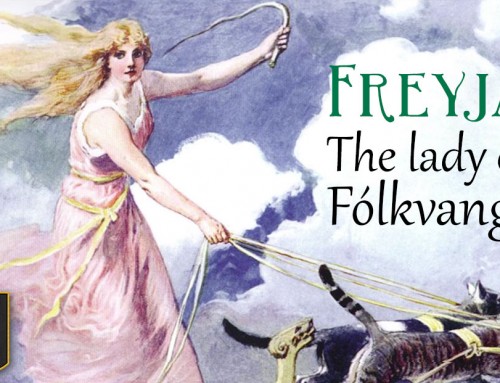Ostara, A Gateway to the Old Religion
by Luther Kovac
When I was nearly eighteen I had become increasingly dissatisfied with Christianity as it was being taught to me in my high school. I was never comfortable with original sin or generational guilt, but the biggest problem I had with the religion was the modern political dogma that has become entrenched in it. One of my instructors (a religion teacher) was pushing the idea that people of my ethnic and cultural background should accept and forgive abuse and violence against us by other groups because “the pendulum may need to swing the other way for a while before we reach equilibrium and equality.” I objected to this in front of the class, stating that punishing innocent people for the sins of their ancestors was immoral, and also that the ancestors of all the various peoples on Earth were guilty of the same type of actions. I thought I would be punished or our argument would be brought to the attention of the school’s administrators, but the instructor simply said I was entitled to my opinion and shut down the conversation.
Not all my instructors were like him, but the fact that he was allowed to promote such ideas disturbed me. The hypocrisy of calling such ideas egalitarian, when they obviously weren’t, was nothing new to me; by then I understood that these ideals had little to do with true equality and that in reality they were never meant to. Tearing down the wealthy has been fashionable excuse for violence since before the French Revolution, and is still the war cry of the ignorant and malcontents, but my family was not wealthy. We had so little, we owned no real estate, had no car, and when I was younger my mother would sometimes skip dinner so that my siblings and I had more to eat. The only reason I was in a private school was because the violence in the public schools in my city had gotten so bad I had been assaulted a number of times. My father was a combat veteran with severe PTSD and had trouble with steady work, and my mother would babysit up to five children at a time to supplement his income. Most of the money my parents could get their hands on went to keep us safe in a dangerous city. Yet here was that instructor attempting to justify violence against us because we were supposed to be “privileged,” and because someone else suffered before I was ever born, and this idea was allowed to be spread by at least some elements of my Christian church.
I knew at the time, and have since met, many Christians that were more in line with my thinking. They are good people and good friends. Despite this I still felt that Christian concepts like original sin made it easier for people to advance certain political agendas. Ironically, the political ideas behind those agendas promoted atheism and were responsible for several anti-Christian purges in the Soviet Union.
One day I found myself walking the streets of Brooklyn under one or the elevated train lines, when I suddenly stopped. A realization overcame me. I was perfectly justified in my opposition to what I was being taught, and in my rejection of original sin and generational guilt. I no longer cared what my instructors, my church, or my God thought about that. I embraced how I felt, I owned it. If that meant that I was going to hell, then so be it.
For a moment I thought I would be deflated, but I was not. I was uplifted. It felt as if a great weight was taken off my shoulders. The tattered remnants of years of social conditioning fell away from me. I knew at once that I would never look at the world in the same way again.
For decades after that day I considered myself an agnostic, but in a way I still had religion. My people were my religion, and what was good for them (in the long term) was good. What was bad for them; was bad. I suppose my loyalty was reinforced by my defiance against people like that former instructor, who would justify the abuse of my people, and therefore me and my family. Even so, I was still attracted to many of the Christian rituals and celebrations, but from a cultural perspective. There were also some ideas within Christianity that I did agree with, even though I was no longer a Christian. I had a love and fascination of my European ancestors that led me to learn as much as I could about them and their history. I found that many things about Christianity were borrowed from the Old Religion in its various forms, and that some of the things I liked best about it were Pagan in origin.
Years ago, I attended an Ostara celebration with the Irminfolk, who share my love for our people and our ancestors. Intellectually I understood the connection between my Pagan ancestors and Christian rituals and holidays such as All Souls Day, Christmas and Easter. At this event I began to understand this on a spiritual level as well. Easter is another name for Ostara, the Christians didn’t even bother renaming the celebration. The goddess helped me understand something profound.
One criticism leveled at neo-Pagans (modern Heathens, if you will) is that there is no continuity of our faith. They say we cannot understand how our ancestors truly worshipped because their faith was stomped out. They claim that our religion is not valid, that it is a reenactment of something that is lost; and can never be replicated. I disagree.
If not for the integration of older religious ideas and ancient European cultures, Christianity would have had a far more difficult time spreading through the continent. Europeans then kept Christianity alive when elsewhere it was overrun by Islam. Europeans eventually spread Christianity throughout the world, and elements of our Pagan past with it.
The goddess helped me understand that what I liked about Christianity was older than Christianity, that through my formative years I was also subconsciously celebrating the religion of my ancestors. The Christians took the old ways from us, but continued to use them, and so we continued to follow them. Easter is Ostara, we still use the symbolism of spring, of fertility and rebirth; eggs, rabbits, and games for children. We feast together with family and loved ones and, without realizing it, continue the holiday of our Pagan ancestors, uninterrupted, for thousands of years. There is the continuity, and it is not the only celebration that supports it. If the critics disagree, it doesn’t matter to me, because there is something else that I learned from my experience.
Ostara was a gateway, and she opened my mind. I said earlier that my people were my religion, and that is still true, but I realize now that the gods of my ancestors are part of my people too. They have stayed with us in so many ways, and they are with me now.

